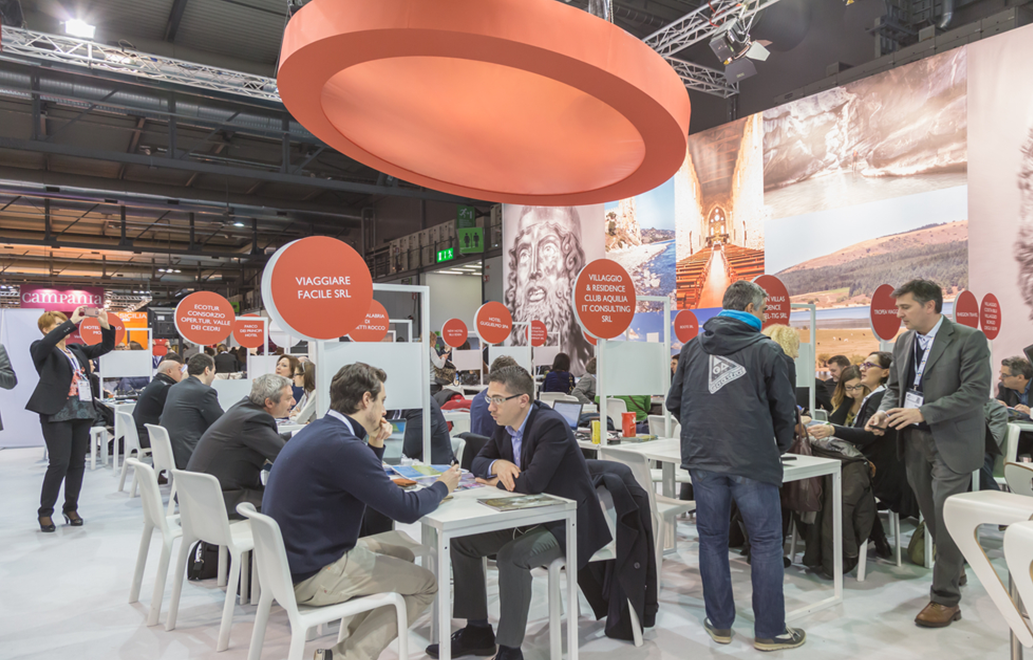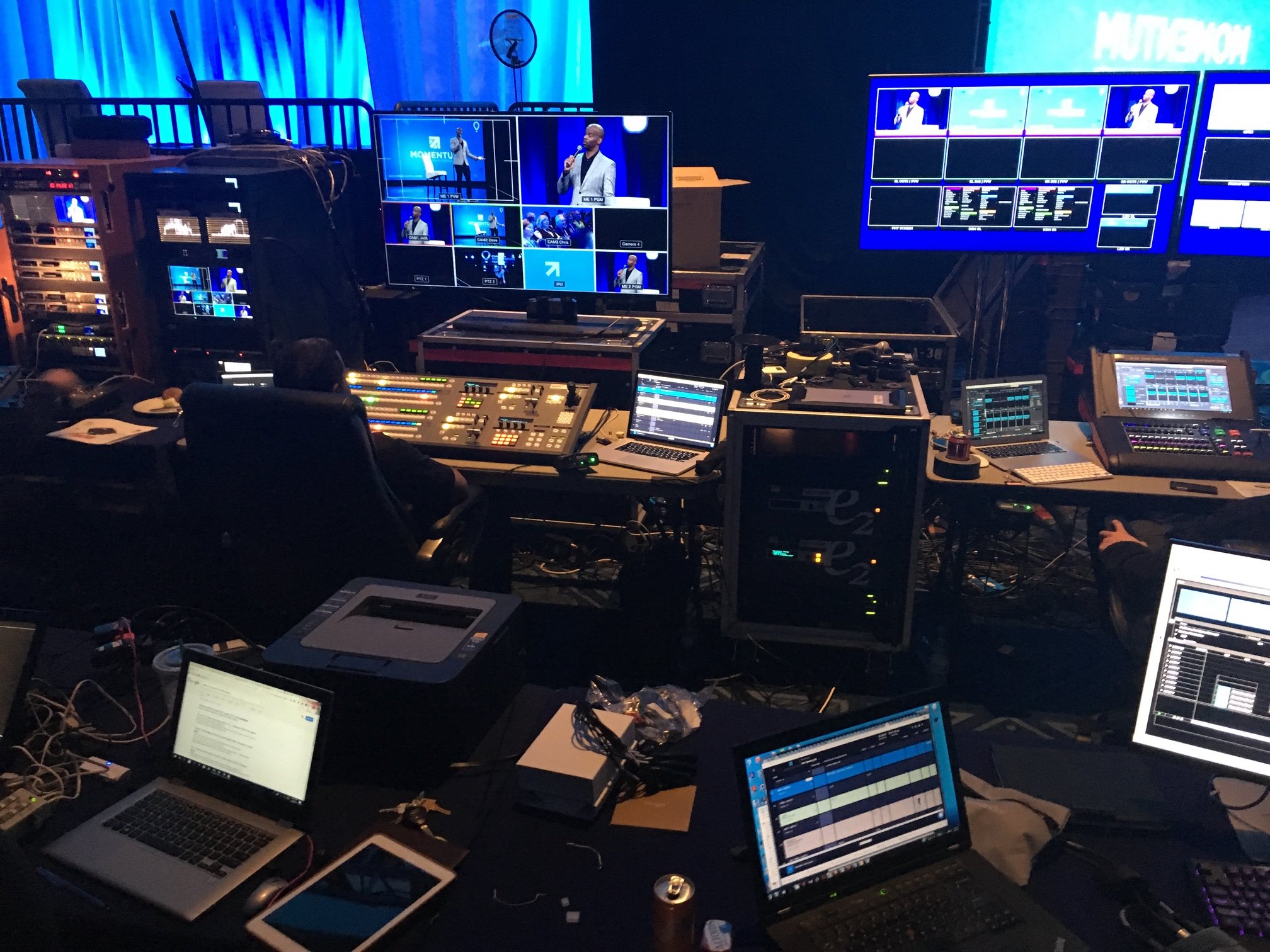Just How Event Production Functions: A Comprehensive Consider the Refine
Event production is a complex and structured procedure that calls for mindful preparation and execution. It begins with establishing clear purposes and recognizing the target market. Each action, from budgeting to location selection, plays a crucial role in ensuring success. As the process unfolds, numerous aspects should align flawlessly. The nuances of this intricate procedure typically go unnoticed. What are the vital stages that contribute to an unforgettable event?

The First Drawing Board
When starting on event production, cautious preparation is important to assure an effective end result. The first planning stage serves as the structure for all succeeding efforts. During this phase, event manufacturers have to specify the event's function and objectives plainly. Recognizing the target market helps tailor the experience and messaging, ensuring significance and engagement.Producers should also consider the event layout, whether it be in-person, online, or hybrid, as this will certainly influence various logistical components. Choosing a suitable day and location is crucial, as it impacts access and availability.Furthermore, setting up a dependable group is essential for separating duties and simplifying interaction. Establishing a timeline with landmarks guarantees all jobs are completed on time. This stage entails extensive research, including recognizing prospective obstacles and developing approaches to reduce threats. Eventually, a well-structured first planning phase establishes the tone for a successful event production journey.

Budgeting and Source Allocation
In event production, efficient budgeting and source allocation are vital for success - event production charlotte. Establishing financial specifications establishes the structure for all subsequent decisions, while source distribution techniques ensure that every part of the event is properly supported. Together, these aspects assist keep control over expenses and maximize using available resources
Establishing Financial Parameters
Establishing financial parameters is vital to the success of any event production, as it sets the foundation for efficient budgeting and resource allotment. This process begins with defining the overall budget, which encompasses all aspects of the event, consisting of place prices, catering, and advertising and marketing. By recognizing readily available funds, event organizers can focus on expenditures and assign resources accordingly. In enhancement, it is vital to conduct thorough market research to prepare for prospective expenses and identify financing resources, such as sponsorships or ticket sales. Establishing clear financial criteria likewise aids in threat monitoring, enabling coordinators to reserve backup funds for unexpected expenditures. Eventually, a well-defined spending plan works as a roadmap, directing the event production group towards achieving their objectives while maintaining economic control.
Resource Circulation Methods
Effective source distribution techniques are essential for maximizing the effect of an event while sticking to budget restrictions. Effective event production needs a thorough method to budgeting and source allotment. Organizers should focus on essential aspects such as venue, food catering, and technology, guaranteeing that funds are alloted to areas that improve participant experience. A comprehensive budget plan needs to describe expected expenses and determine locations for possible cost savings, such as discussing with suppliers or exploring sponsorship chances. In addition, tracking expenses throughout the preparation procedure aids prevent overspending. By employing tactical source circulation, event manufacturers can supply an unforgettable experience while keeping monetary duty, ultimately adding to the overall success of the event.
Venue Selection and Logistics
Selecting the ideal location is important to the success of any kind of event, as it establishes the phase for the general experience. Location choice includes assessing different factors, consisting of ability, access, and area. Organizers need to think about the target audience and the nature of the event, guaranteeing the venue aligns with the event's goals.Logistics play a substantial duty in this procedure, including plans for seating, audiovisual tools, and providing services. A well-chosen place must help with smooth flow for participants and personnel, enhancing engagement.Additionally, reviewing possible venues for facilities like parking, toilets, and fire escape is very important for security and benefit. The timeline for safeguarding the location is also critical, as preferred locations might reserve promptly - event production charlotte. Thorough preparation and prompt execution can inevitably contribute to a seamless event experience, making place selection and logistics basic elements of effective event production.
Creative Idea Growth
While the venue sets the physical phase, imaginative concept advancement forms the event's identity and narrative. This procedure starts with identifying the event's function and target market, permitting event producers to develop an engaging motif that reverberates with attendees. Brainstorming sessions usually include diverse perspectives, promoting cutting-edge concepts that straighten with the event's goals.Once a theme is established, visual aspects such as shade combinations, signs, and style are designed to enhance the overall atmosphere. Storytelling methods might likewise be incorporated to develop an interesting trip for individuals, assuring a remarkable experience. Additionally, considerations concerning enjoyment, activities, and interactive elements are lined up with the selected idea, reinforcing the theme throughout the event.Ultimately, reliable innovative idea advancement assurances that every element of the event functions cohesively, leaving a lasting perception on guests and satisfying the event's objectives. This fundamental job prepares for subsequent planning and implementation phases.
Working together With Vendors and Suppliers
Effective event production pivots on efficient collaboration with suppliers and vendors. Choosing dependable companions, bargaining contracts effectively, and making certain prompt deliveries are critical action in this procedure. Each of these aspects contributes substantially to the general success and smooth execution of an occasion.
Selecting Reliable Allies
Exactly how can event organizers ensure a seamless production experience? Choosing dependable companions is vital in achieving this goal. Event coordinators must carry out comprehensive study to identify suppliers and suppliers with a tested track record of excellence. This consists of checking recommendations, reviewing portfolios, and reviewing customer comments. Organizers ought to focus on companions who demonstrate professionalism and reliability, prompt interaction, and a determination to work together. Structure solid relationships promotes trust fund and enables quick problem-solving during the event. In addition, it is beneficial to choose regional suppliers that recognize the place and regional logistics. Ultimately, a successful event depends upon the synergy between coordinators and their companions, making resource certain that every aspect of production runs smoothly and efficiently.
Working Out Contracts Efficiently
Efficient settlement of agreements is a crucial action in the partnership between event coordinators and their vendors and providers. This process involves clear communication of expectations, deliverables, and timelines. Planners should perform thorough research on market prices and sector criteria to develop a baseline for negotiations. It is important to create a collaborative ambience, urging open discussion regarding terms, prices, and prospective contingencies. Organizers must likewise prioritize recognizing the supplier's abilities and limitations to align their needs properly. Versatility can result in equally valuable contracts, fostering lasting connections. Crafting well-defined agreements that include details performance metrics can assist guarantee liability, eventually bring about successful event execution and satisfaction for all celebrations involved.
Making Certain Timely Distributions
Timely shipments are important for the smooth implementation of any event, needing diligent collaboration in between coordinators and their vendors and vendors. Efficient communication is vital, as it helps establish clear expectations pertaining to shipment timetables, quantities, and particular needs. Planners typically develop comprehensive timelines to detail critical turning points, making certain all parties stay lined up throughout the process. Routine check-ins with suppliers can aid identify potential delays early, enabling for aggressive remedies. Additionally, constructing solid relationships with reputable vendors cultivates trust fund and accountability, which can result in better solution and prioritization. By focusing on these joint initiatives, organizers can decrease disturbances, therefore boosting the total effectiveness of event production and making sure that all needed products and services arrive as planned.
Marketing and Promotion Strategies
While arranging an occasion, the success of advertising and promotion approaches can considerably influence presence and interaction. Effective techniques frequently consist of a combination of digital advertising and marketing, conventional advertising, and grassroots outreach. Using social like this media systems permits real-time interaction and targeted advertising and marketing, reaching particular demographics efficiently. Email advertising and marketing campaigns can better engage prospective attendees with tailored content and reminders.Collaborations with influencers or sector leaders can also improve reliability and expand reach. Creating interesting material, such as video clips or blog sites, helps to produce buzz and sustain rate of interest leading up to the event. In addition, leveraging early-bird discounts and exclusive perks can incentivize ticket purchases.Promoting with typical channels, such as posters or regional media, stays appropriate, especially in community-focused events. A detailed strategy that integrates several methods warranties optimum visibility and interaction, eventually adding to the event's success and the creation of an unforgettable experience for participants.
On-Site Implementation and Monitoring
On-site implementation and management are important elements that figure out the general success of an occasion. Efficient sychronisation throughout the event assures that all elements align with the prepared program. Event supervisors manage logistics, consisting of vendor sychronisation, devices configuration, and guest services. Keeping track of timelines and attending to any type of unforeseen problems are fundamental for maintaining a smooth experience.The team plays a substantial function, as qualified personnel are responsible for various jobs such as enrollment, info dissemination, and technological support. Communication amongst staff member is crucial; it promotes a collaborative setting and allows quick resolution of challenges.Additionally, safety methods should be adhered to, guarding the wellness of all attendees. Post-event analyses are likewise part of on-site monitoring, offering understandings for future enhancements. By concentrating on these elements, event producers can produce memorable experiences that fulfill or exceed participant expectations while attaining the event's goals.
Regularly Asked Concerns
Just how Do I Select the Right Event Motif?
Selecting the go appropriate event style involves taking into consideration the target audience, event function, and place. Investigating existing trends and gathering input from stakeholders can additionally inspire innovative concepts that resonate and produce a remarkable experience.

What Prevail Mistakes in Event Production?
Usual errors in event production frequently consist of insufficient planning, bad communication amongst staff member, spending plan mismanagement, overlooking to consider the target market's needs, and falling short to carry out a comprehensive post-event analysis for future enhancements.
How Can I Determine Event Success?
To measure event success, one can examine attendee fulfillment, engagement degrees, budget adherence, and post-event comments. Trick performance indicators, such as ticket sales and social media communications, additionally offer beneficial insights into total effectiveness.
What Should I Do if It Moistens the Event Day?
In case of moisten the day, the organizer must implement contingency strategies, such as safeguarding tents or moving activities inside. Interaction with attendees regarding adjustments is vital to ensure a smooth experience in spite of climate challenges.
How Can I Guarantee Guest Involvement Throughout the Event?
